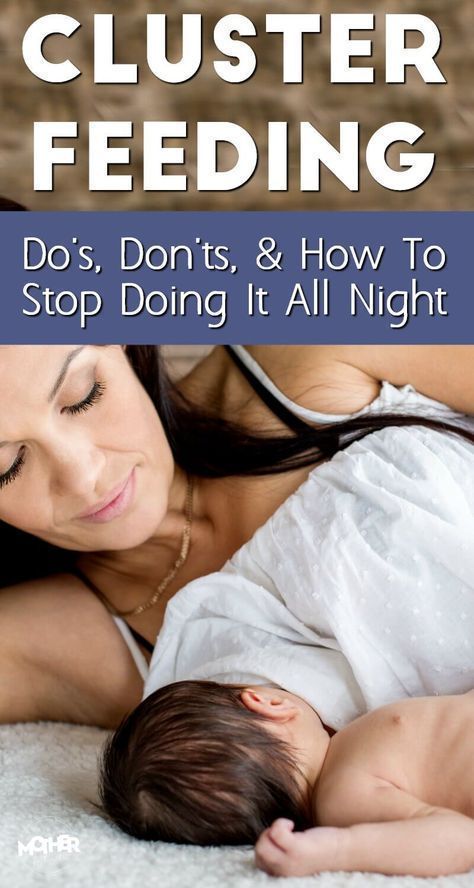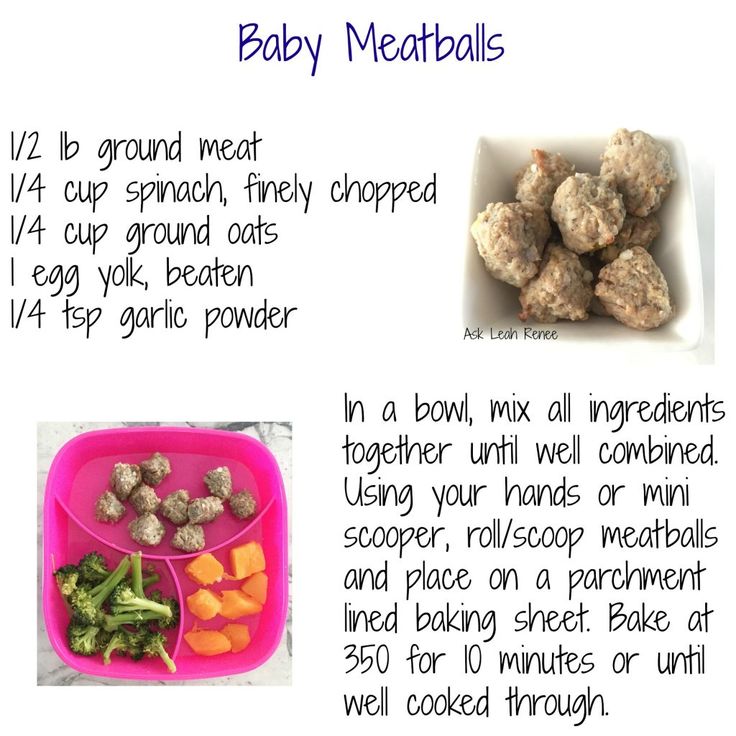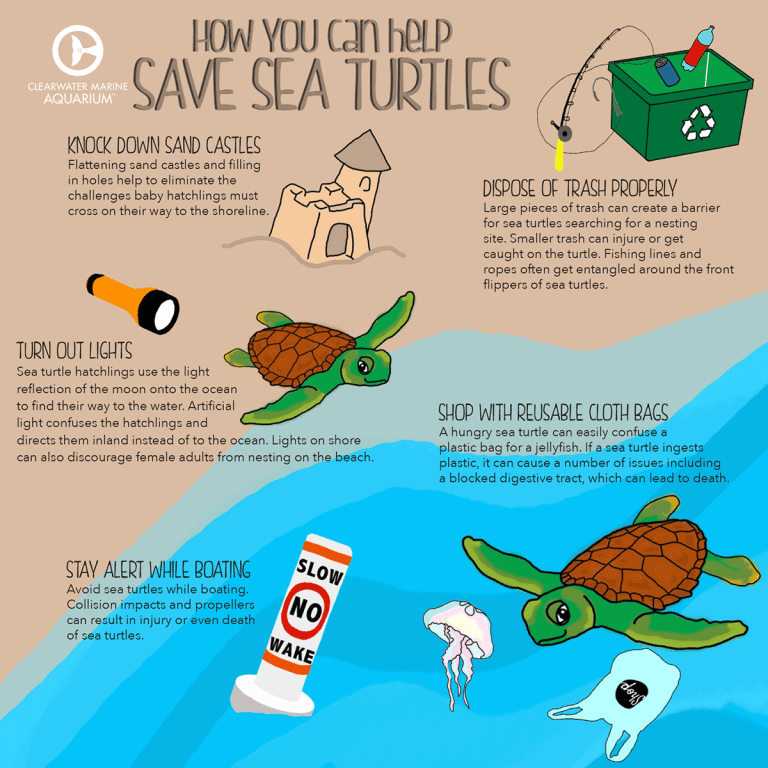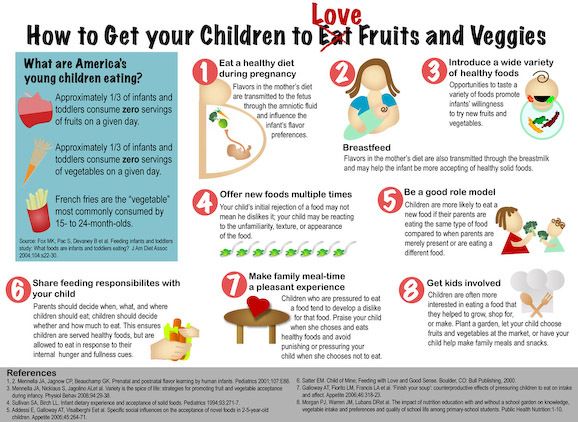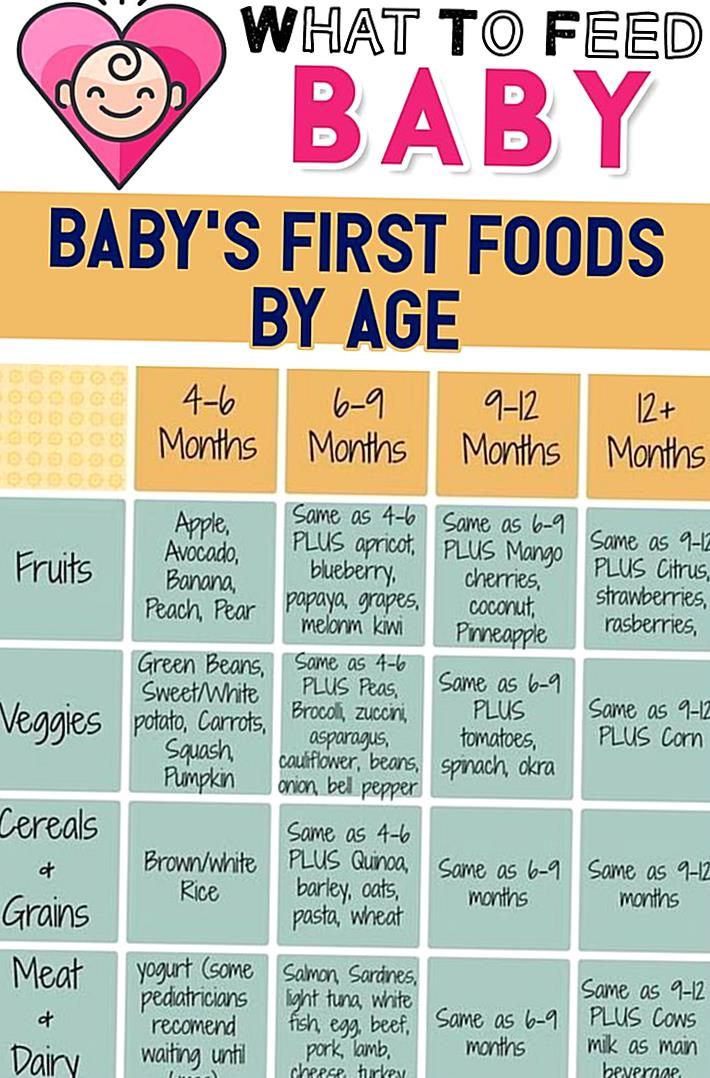How to stop baby cluster feeding at night
Do's & Dont's (Plus How To Do It Right)
What's in this post...
Are you busy with a cluster feeding newborn? This will help you know what to do so you’re not up all night feeding a baby every hour.
Newborns are perfectly snuggly and sweet and warm and wonderful. It’s like you are focused on being so heavily pregnant and making it to birth and then… in an instant you have a tiny person that is so perfect.
And dependent on you.
But it can be hard to survive.
If they won’t sleep well, don’t seem to be eating well, and are irritable due to gas pain, overtiredness, or even baby teething… then you can feel like you’re slowly starting to lose your mind from lack of sleep and complete world upheaval.
A common phenomenon with little ones… cluster feeding.
What is it?
Cluster feeding (n): A breastfeeding pattern when baby groups several feeding sessions in a short window of time. It can happen for a number of reasons (some purposeful, some not), which we’ll dive into below.
Some other names for this are topping up or tanking up (giving baby a bit more to make sure they aren’t hungry when they go to bed) or even split feeding.
Split feeding is used when you sort of divide up a feed into two so that baby gets what they need immediately, then some more again before going off into dreamland.
How babies cluster feed – 4 likely scenarios:
- Baby cluster feeds at night, but not during the day.
- Baby cluster feeds both day and night.
- Or baby snacks all day but never takes full long feeds.
- Baby cluster feeds sometime in the late afternoon/early evening period (5 pm to 11 pm) on purpose.
Rules of thumb while cluster feeding your newborn
Cluster feeding can really feel difficult or confusing, but I want to assure you that these newborns days are intense yet they will pass.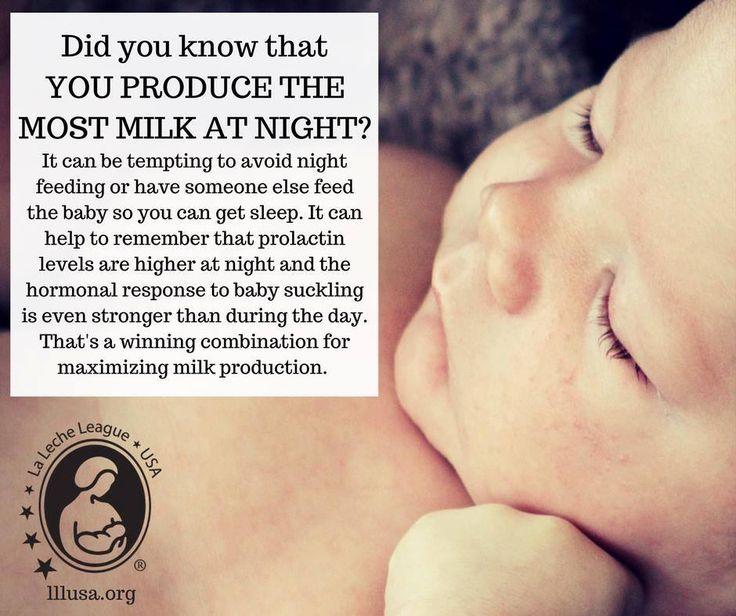
And the habits you start now can create a strong foundation then fade out naturally into a mutually beneficial routine.
Remember, during this time you may find your baby log comes in handy to refer back to. You certainly don’t need to keep track of anything, but organized mamas often feel comforted by this. Knowing that baby is getting enough milk and sleep throughout the day.
Reasons cluster feeding works
So first of all, you’ll end up cluster feeding at some point in the day with your newborn.
Their tummies are tiny and they need to fill them up at regular intervals.
This is actually a good thing and you can use this feeding rhythm to your benefit in a way that means baby gets more sleep and you do too.
Read: End Baby’s Witching Hour — In 4 Simple Steps
If you are reading this, exhausted from excessive breastfeeding (which according to research is a common reason many mothers abandon breastfeeding altogether) then please know you don’t have to feed every hour around the clock to successfully breastfeed.
As a certified infant and child sleep consultant and mother of 5, I can attest to this.
Reasons Tanking Up Is Beneficial And Why Babies Do It:
- Your baby gets lots of nourishment in a shorter period of time which is beneficial during the late afternoon/early evening hours when, depending on your personal stress levels, milk quality may be lower.
- Baby can sleep longer stretches after cluster feeding periods.
- Mom can sleep longer stretches because baby is sleeping longer stretches.
- Milk supply can be kept up with regular feeding.
- Cluster feeds help babies get through growth spurts by maintaining adequate milk supply.
- Your baby is less likely to wake up early from a nap or night sleep due to hunger.
Read: Dreamfeed: The Why, The How, & When To Stop
Watch my video on an important cluster feeding issue.
Hourly feedings at night: day night confusion?
If your baby cluster feeds at night, but not during the day then sweet baby probably has some day night confusion going on.
The goal is to make those cluster feeds during daytime hours so they’re sleeping longer stretches at night.
If baby wants to nap for 4 hours during the day… well… don’t let him!
Follow my newborn sample routine or my week by week newborn schedule and do what works for you, but know that if you let baby sleep long stretches during the day he will be up more frequently at night.
Lots of lengthy daytime naps lowers baby’s sleep need. A baby only needs so much deep sleep in a 24 hour period and if he’s getting it during the day… he won’t at night.
Read: What To Do When Baby Is Feeding Every Hour (& Not Sleeping!)
Newborn Settling Guide
Tried-and-true *hands on* newborn settling strategies that even the most fussy (or wide-awake-sleep-refusing) newborns cannot resist!
Learn More
The way forward?
Purposefully cluster feed your newborn in late afternoon and early evening and make sure baby is taking full feeds.
This means at least 10 minutes per breast if you’re nursing, often times twice that.
Read: Cocooning a Newborn & 7 Reasons Why it Can Be Good For The Family
PRO TIP
You can tell when baby is no longer actively nursing but just remaining latched on in a few ways.
First, look at the muscles on baby’s cheek. If they are nursing it will be moving up and down. Next, discern whether baby is swallowing or not.
Then, look at baby’s chin, is it moving as it does during active sucking (aka nursing).
If none of these are happening baby is likely asleep and engaging in non-nutritive sucking.
Read: How To Fix Day/Night Confusion In 3 Nights Or Less
Cluster Feeding CHECKLIST
Use our checklist to use cluster feeding to your advantage without feeding every hour all day every day!
How to stop cluster feeding at night (if you’re ready)
Whew.
Ain’t no mama want to be up every hour at night. The good news is you don’t have to be.
Even if you are feeding every hour through the night, you can shift that and begin getting longer stretches at night.
What’s the only way to stop cluster feeding at night?
Make sure baby is getting as much milk as they can throughout the day.
Don’t let baby snack while nursing. 10 minute feeds throughout the day mean baby will be up all night because baby is hungry and needs milk.
When you start giving baby full feeds throughout the day (this will mean you’ll have to do jump through some hoops to keep baby up) and baby settles into a predictable routine then they’ll sleep longer stretches at night.
Read These While You’re At It
Purposefully cluster feed in the late afternoon period when the milk supply is at its lowest quality (4 pm onwards) so that baby’s tummy is as full as it can be.
This will promote deeper sleep.Eventually, even if baby wakes frequently at night for feeds, if you are not giving long full feeds throughout the night baby will get it.
It’s super hard when your newborn is cluster feeding all night, but you will get there and it will get easier!
Read These While You’re At It
Are you feeding your newborn both day and night?
If you have a cluster feeding newborn both day and night there are only a few likely alternatives.
- Milk supply is low and baby is starving.
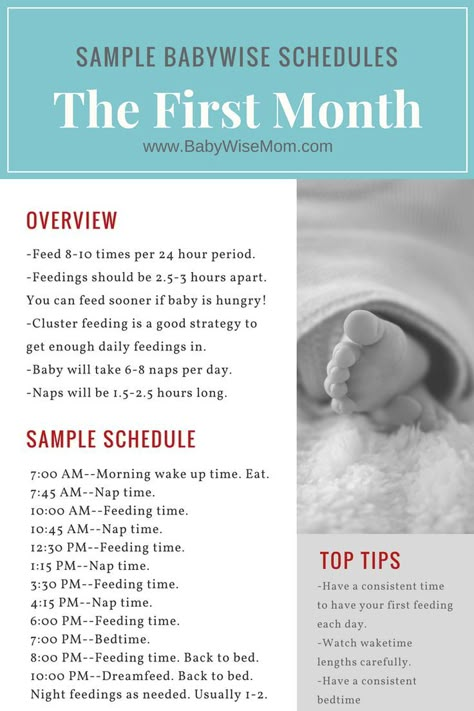
- Baby is going through a growth spurt and is starving.
- Baby is only “snacking” and not taking full feeds or getting to the hindmilk rich in nutrients because he just takes a bit then stops.
The best way to help baby stop cluster feeding day and night is to determine which issue you’re having.
If it’s milk supply then continue feeding until your supply is up or supplement with formula (see a lactation expert).
Alternatively, if baby is going through a growth spurt then there’s nothing to do but wait it out and feed baby as much as possible to keep them full and get your supply up to meet the demand.
Newborn Feeding Chart
Use this simple printable chart to track your feeds to make sure baby is fed, your supply is up, and everyone is well.
What to do if baby only “snacks”
- Keep baby awake during feeds by taking off their clothes except diaper.
 You can also rub their feet, cheeks, or hands with a baby wipe or keep trying to stimulate them to stay awake long enough to feed. You can put them on a soft blanket or tummy time mat and let them kick in their diaper until they’ve woken up, then continue feeding.
You can also rub their feet, cheeks, or hands with a baby wipe or keep trying to stimulate them to stay awake long enough to feed. You can put them on a soft blanket or tummy time mat and let them kick in their diaper until they’ve woken up, then continue feeding. - Try not to put baby down to sleep if they fall asleep while nursing unless they just won’t wake up. Keep trying to feed baby even if it takes a bit of time so they’ll get as much as they can.
- Differentiate between active nursing and non-nutritive sucking, and let baby do one but maybe not the other.
- Give the baby a pacifier (the pacifier I recommend that stays in baby’s mouth) if they wake and want to nurse right after having nursed a short time ago. They might just need to satisfy the sucking urge and this will help. Also, the next time they feed after this will mean they’ll take more milk and keep your supply up. “Snacking” can contribute to a lower milk supply because baby is never emptying a breast and getting the rich milk.

Eventually by doing those things baby will stop snacking and start taking fuller feeds which will naturally result in longer times between feeds.
Read: The Ultimate Newborn Sleep Schedule: Week By Week For The Postpartum Period
Cluster feeding in the early evening
The prime time to have newborn cluster feeding sessions is the late afternoon early evening.
As I previously said, the milk supply can be lower in quantity and quality at this time due to the stresses of the day.
Because of this, feeding baby every 2 hours for a few hours will help keep your supply up, will keep the little one happy, and will set them up to sleep longer stretches at night.
Your evening routine might look something like this.
4:30 p.m. Nurse and nap
6:30 p.m. Nurse and catnap (or skip nap)
8:30 p.m. Nurse and bed
10:30 p.m. Dreamfeed
By purposefully cluster feeding in the right time you’ll help everyone sleep more at night while keeping your precious one topped up on milk.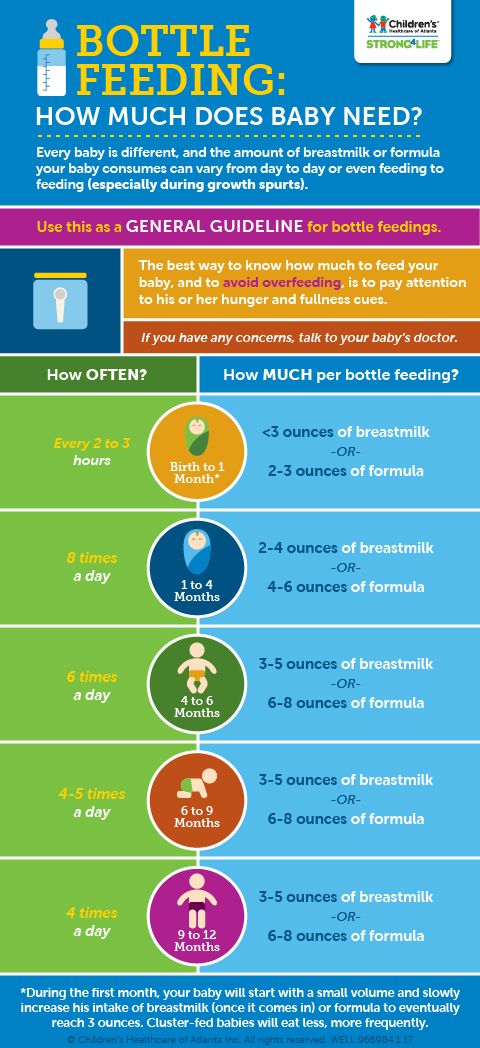
Summary
- Feed every 1.5 to 2 hours during the early evening.
- Give baby plenty of milk before their bedtime so they are satisfied and sleep longer.
- Cluster feed during the DAY so you don’t find yourself having to cluster feed at NIGHT.
- Drop the cluster feeds when baby is no longer interested in one of the feeds.
Remember, feeding at frequent intervals in the late afternoon early evening will not solve actual sleep problems, but it will help your little one have a full tummy.
Sleep issues might subside if they were hunger related.
Cluster Feeding CHECKLIST
Use our checklist to use cluster feeding to your advantage without feeding every hour all day every day!
Rhythms, Routines, & Schedules Pack
Easy to implement routines, rhythms and schedules from birth through school-aged kids to help you streamline day-to-day life with kids, including a step-by-step guide for getting started.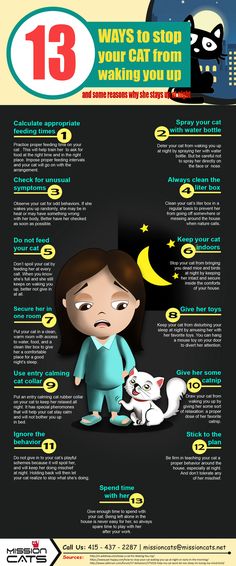
Learn More
Need sample routines for babies 6 weeks and older?
By now, you know how to handle the early days, but what after? Here is the good news: you’ve set your baby up for a foundation of success.
Now all you need to do is continue to find routines that work for you and your baby as they grow up and begin getting bigger and bigger.
Sob.
After having 5 babies with 5 different personalities, I know a thing or two about finding a good schedule.
This is why I’ve created a book of sample routines and schedules for babies ages 6 weeks up to 5 years.
The book includes information on how long to let baby stay awake, how much play time is good for each age, what to do with baby when baby is awake but not quite mobile, and even how to manage toddler and baby joint routines.
Chapters covered in Rhythms, Routines & Schedules include:Section One: Sample Schedules
- 6 Weeks to 3 Months Old
- 3-6 Months Old
- 7-9 Months Old
- 9-12 Months Old
- 12-18 Months Old
- 2-3 Years Old
- 4-5 Years Old
Section Two: Tips and Tricks
- Tips for Managing the Day With Multiple Children
- Daily Rhythms for an Only Child Ages 1-4 Years Old
- Daily Rhythms for Multiple Small Children Ages 0-5
- Sample Bedtime, Mealtime, and Playtime Routines
- Tips for Keeping Kids Busy Throughout the Day
For more sample routines, mom tested and approved schedules for babies ages 6 weeks and up, check out Rhythms, Routines & Schedules right now.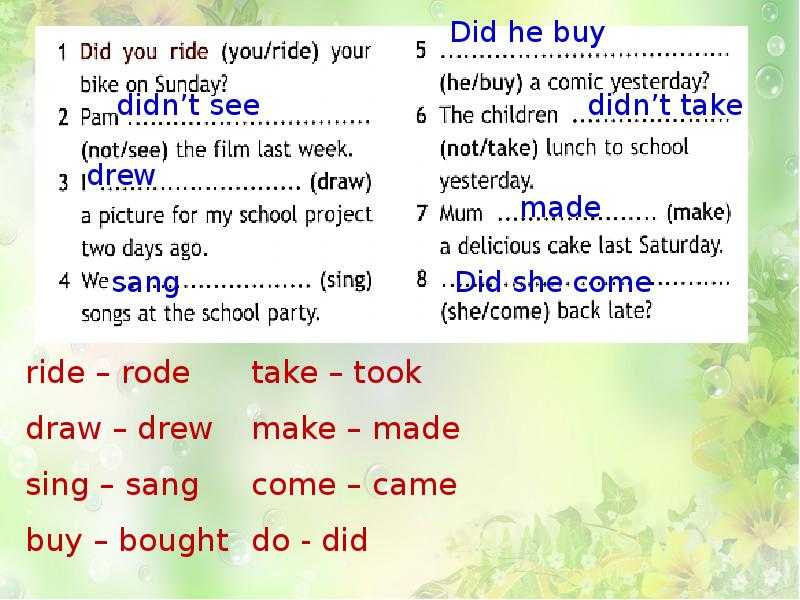
Cluster Feeding FAQ
How long does cluster feeding last?
Cluster feeding typically will happen until around 4 or 5 months of age. Once baby is around 5 months (see the 5 month old schedule here) and they are eating solids, there isn’t as much of a need for cluster feeding.
Does cluster feeding increase milk supply?
If your supply is low and baby is frequently feeding, this will increase your supply. Milk supply and quality is typically lower in the late afternoon early evening and cluster feeding can help fill baby.
Can you overfeed a breastfed baby?
Babies need to eat when they are hungry. Too much “snacking” can mean that baby is getting a lot of the foremilk which is less nutrient dense and will contribute to more feeding. Solution? Full feeds with hindmilk for baby.
Is cluster feeding all day normal?
Yes and no. Babies can tend to feed every hour all day long if they aren’t getting enough milk or they are snacking. If baby is feeding every hour all day long they’re not actually getting much food, they are using your breast as a snack bar.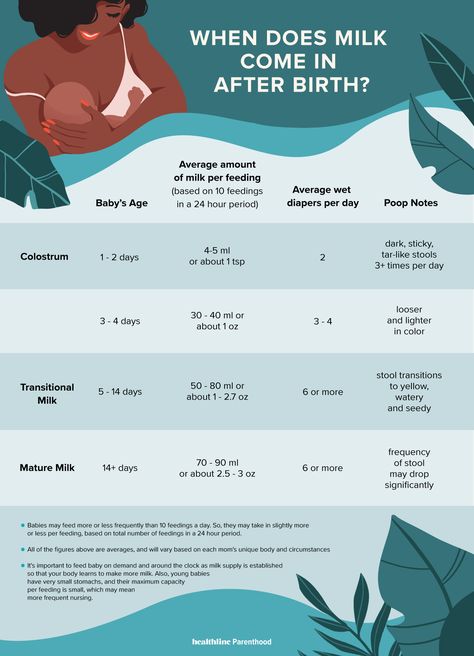 If you’re okay with this, then you’re good to go. And if not, focus on full feeds.
If you’re okay with this, then you’re good to go. And if not, focus on full feeds.
Is it normal for a newborn to breastfeed every half hour?
If babies take full feeds (nursing for 30 to 45 minutes typically) they won’t need food every half hour or even every two hours. If they snack they will feed more frequently.
Sources:
- Fatigue associated with breastfeeding is a major cause in why women stop
- Excessive night waking is associated with increased maternal depression
- Breast milk composition (specifically nucleotides) helps varies by time expressed, late evening feeding linked to more melatonin production in babies
Family Routines Reboot
Take our 3 day challenge to create life-giving family, child, and self-care routines.
Learn More
::
Why Babies Do It and How to Manage It – Dreamland Baby
Skip to content☁️ FREE SHIPPING ON U.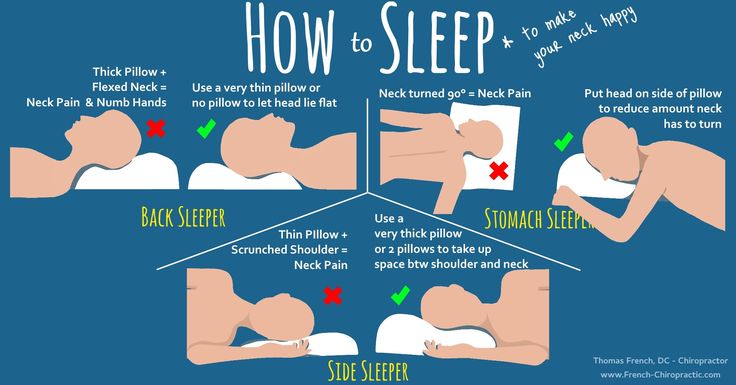 S ORDERS ☁️
S ORDERS ☁️
Now reading: Cluster Feeding at Night: Why Babies Do It and How to Manage It
PrevNextIf you have a new baby who spends the entire evening or night attached to your breasts, never seeming satisfied no matter how many times you feed them, you’re probably wondering what’s going on. It's likely your baby is going through a period of cluster feeding...and it’s completely normal.
Cluster feeding is most common in younger babies and often presents itself in the evening and night hours. Here we’ll discuss more about what cluster feeding is, why your young infant requires so many feeds during a short time, and how to manage this exhausting time period with your hungry, little babe.
What is cluster feeding?Cluster feeding is when your breastfed baby nurses several times during a short window of time. With these back-to-back nursing sessions, it can feel like your baby is feeding non-stop. Formula-fed babies can cluster feed, too, but it is more common in breastfed babies.
There isn’t one reason that babies cluster feed, but it often signals the mother’s body to make more milk. If a baby isn’t getting as much breast milk as they need to get full, they will continue to nurse until they are able to get the nutrition that they need.
Growth spurts, as we write about here, are a time when a baby may be more apt to cluster feed. Typical ages during the infant stage that you may see these occur are 2-3 weeks, 6 weeks and 3-4 months. Older babies don’t generally cluster feed even when they are going through a growth spurt.
Are you looking for a better swaddle for your baby? Check out our weighted sleep swaddle as seen on Shark Tank.
Why do babies cluster feed so much at night?Cluster feeding can happen at any time, but it’s much more common in the evening and through the night. Probably not what you want to hear, right?! You can have a perfect day with your baby, where everything is following the “schedule” to a T, and all of a sudden 5 o’clock hits and your baby wants nothing else but to nurse.
Though it’s likely that your baby is cluster feeding due to a growth spurt or just requiring more milk from you to get full, it’s not always about nutrition. Babies also can be really tired in the evenings and nursing gives them comfort.
Though this isn’t true for all pairings, a baby may need to nurse from her mom more in the evening because she isn’t getting a full feeding from one session like she does at other times of days when the breasts are fuller. According to Lactiful, “A mother’s body typically produces more milk in the morning, and less as the day goes on. This is normal. Therefore, as evening nears it’s normal for baby to ask for more frequent feedings.”
Your baby’s need to cluster feed shouldn’t be a sign that you have a low milk supply. Instead nurse them as they need, and your body should respond by producing more milk over the course of the next several days.
Benefits of Nightly Cluster FeedingWhen you just fed your baby 30 minutes ago and they seem to be asking for the breast again, you may mistakenly think that hunger isn’t the issue.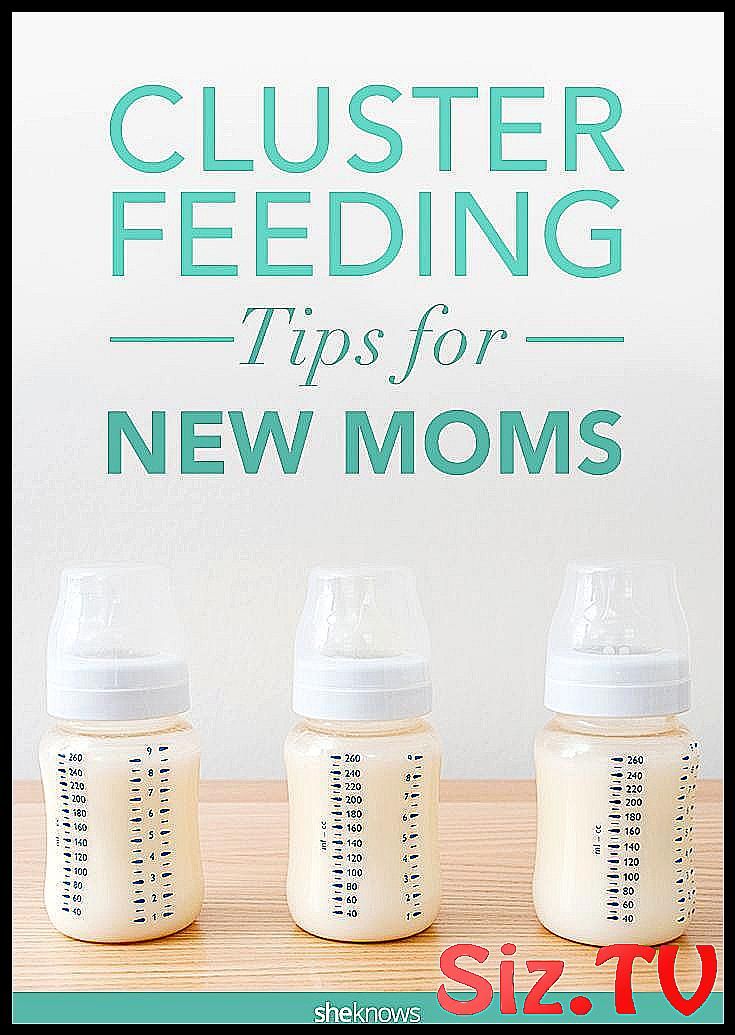 If your baby is upset and nursing calms them, then that’s your sign that they need to feed again. We know these back-to-back nursing sessions can be exhausting, but it’s important that you let them happen.
If your baby is upset and nursing calms them, then that’s your sign that they need to feed again. We know these back-to-back nursing sessions can be exhausting, but it’s important that you let them happen.
(If your baby still cries when you offer the breast, you may have a situation where your baby has colic. We recommend reading, “Helping a Baby With Colic: Identifying Symptoms and 10 Soothing Tips.”)
Encouraging cluster feeding when they need it will ensure your baby has enough milk. It will also allow your body to start producing the milk required to keep up with your baby’s nutritional needs going forward. Cluster feeding is temporary, so managing it in a way that keeps you both as relaxed through it as possible, the better.
7 Tips to Manage the Nightly Cluster FeedingsCluster feeding can run you ragged if you let it. And if you’re feeling overwhelmed by it, you’re not alone.
When you’re stuck in the phase where your baby is constantly latched to you it’s difficult to imagine a life beyond that where you have your body and more time back. But it is temporary - usually only lasting on and off for a month or two. In the meantime, the best thing you can do is accept that your baby will need to cluster feed and then focus on managing it in a way that allows you to stay relaxed through it as much as you can.
But it is temporary - usually only lasting on and off for a month or two. In the meantime, the best thing you can do is accept that your baby will need to cluster feed and then focus on managing it in a way that allows you to stay relaxed through it as much as you can.
We’re not going to sit here and tell you to enjoy every moment, but we will tell you that setting realistic expectations for this time will set it up to be a much more positive experience.
1.) Expect It and Plan Ahead
Crossing your fingers and hoping this is the night that your baby decides to stop cluster feeding is only going to serve to let you down. It’s much better to go into your day expecting your baby to cluster feed as they have been and this will help you prepare for when that hour comes.
It’s much better to set realistic expectations for the situation so you don’t end up overwhelmed and frustrated. That way, instead of eyeing the clock and anxiously holding your breath, you can instead plan that time according to your baby’s needs. For example, if you know that your baby typically cluster feeds between 6 and 8, plan to set up shop on the couch during that time. Reframe this time as when you’re not able to get anything accomplished to a time you can just relax and provide comfort to your baby.
For example, if you know that your baby typically cluster feeds between 6 and 8, plan to set up shop on the couch during that time. Reframe this time as when you’re not able to get anything accomplished to a time you can just relax and provide comfort to your baby.
2.) Vary Your Breastfeeding Positions
Because your baby latches on so many times during a cluster feed, your nipples can take a beating. Not only do you want to be taking care of your breasts by using lanolin and nursing pads, but changing up the position you feed your baby in can help, too.
Changing nursing positions switches up the angle that your baby is taking your breast, meaning there’s less likelihood of a lot of irritation building in one spot. If you do find the pain to be unbearable, however, it’s important to reach out to a lactation consultant.
Side-lying breastfeeding is a great option. This allows you to lay in your bed to nurse, helping you to relax during these times when your baby won’t let you do anything else but nurse them.
3.) Keep Up with Baby's Bedtime Routine
The last thing we want is for you to feel guilty if you miss any steps of your bedtime routine. But it is important to do as much as you can between your baby’s feeds. This will continue to signal to your baby that nighttime is for sleeping, ensuring that when your baby’s cluster feeding period is over they’ll move right back into their old routine.
On top of that, your baby has come to expect their bedtime routine and it’s calming for them. Sticking with your baby’s bedtime routine is a great way to get them relaxed and ready for bed as you give them those last feeds of the day...which can extend the time before they’ll wake up to feed again.
To calm your baby at night we recommend:
- Swaddling in a Dreamland Baby Weighted Swaddle (or a Weighted Sack if your baby is already rolling over) - the all-over quilted weight of this unique sleep sack will induce feelings of calm for a baby as they top off their milk for the night and prepare for sleep
- Turning out the lights - the stimulation of light may keep your baby up and feeding, which is why we recommend doing later evening cluster feeds in your baby’s dark room
- Singing or using white noise - Utilizing music is a great way to calm your baby as we discuss in this article
Use a Dreamland Baby Weighted Swaddle or Sack to calm your baby during cluster feeds so they'll fall asleep faster and stay asleep longer.
4.) Try Baby Wearing
Your baby’s need to cluster feed isn’t always about getting more calories. Sometimes they just want to be close to you or have become overstimulated from the day. (It may even be that they need to be laid down for a catnap.)
If you’ve attempted cluster feeding but your baby still seems unhappy, you may want to try wearing your baby through the evening hours. If you utilize a carrier that positions your baby in a way that they can still breastfeed (the Baby K’Tan is great for this), this allows them to cluster feed at their leisure or pull off when they’re no longer hungry. Wearing your baby can get you through some tough evenings - it keeps your baby happy and you’re able to accomplish what you need to get done.
5.) Prep Dinner in the Morning
Your baby may be one of the many who insists on being at the breast starting in the early evening all the way until bedtime. This can make getting dinner ready difficult if that task falls on you.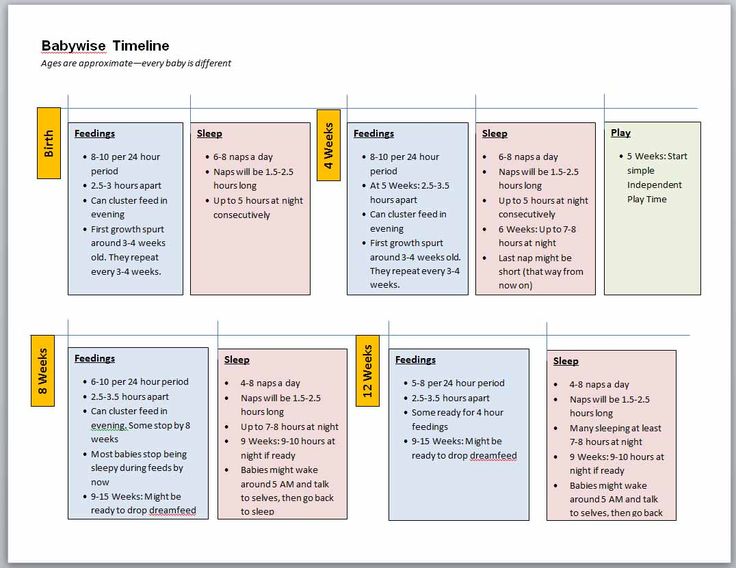 One of the best things you can do for yourself is to have dinner ready ahead of time.
One of the best things you can do for yourself is to have dinner ready ahead of time.
Making Crock-pot meals in the morning that are ready to spoon out will make this time of day much less stressful - especially if you have other little mouths in the house to feed. At the very least, having everything chopped and ready to go will cut down your dinner making time, meaning you’ll have more time to be with your baby. This will help ensure you get fed, too - because if you’re not taking care of you first, it’s very hard to give the best care you can to your little one.
6.) Utilize a Dream Feed
If you have a baby who is frequently waking up at night to feed, utilizing cluster feeding sessions in the evening alongside a dream feed before you head to bed is a great way to help your baby sleep longer stretches at night.
Essentially, you'll feed your baby one last time right before you go to bed. This will likely mean getting them out of their crib and getting them to stir just enough that they'll take a full feed. That's the gist, but we have an entire post about how to dream feed here.
That's the gist, but we have an entire post about how to dream feed here.
A dream feed will help top your baby off one last time before bed and will reduce the number of times they'll need to feed in the middle of the night.
7.) Take a Break
Even for the most flexible, easygoing moms, cluster feeding can be a lot. It's exhausting feeling like you're doing everything you can to satisfy your baby and they're still hungry. Remind yourself that it's temporary helps, but in the moment it feels like it will never end.
It's important that you give yourself a break, even if it's short. Pass your little one off to your partner and take a bath or go for a walk. You'll want to avoid giving a bottle simply because in order for your milk supply to increase as your baby requires, you'll need that breast stimulation from the cluster feeds. But try to utilize any spare time between feeds to let chores go and give yourself a little "me time" or take a little nap. This will go along way with staying positive even when your baby needs to feed multiple times in the evening or overnight.
How long does cluster feeding last?
Cluster feeding is normal behavior for newborns and typically happens during growth spurts. So while your baby used to feel satisfied in a more predictable pattern (around every 2-3 hours throughout the day), expect more back to back feedings at around 3 weeks old, 6 weeks old, 3 months and 6 months. Keep in mind that every baby is different, so these dates are not one size fits all. But as growth spurts occur, it means that their little brains and bodies are developing, and that extra feeding helps.
In terms of how long a cluster feed might last, well… you may start to feel like a feeding machine. It could be as much as every half hour and/or for longer periods of time, more frequently. But the more your baby eats, the more your milk supply will increase and eventually, things will feel more “normal” again.
What ages do babies cluster feed?
Babies usually cluster feed when they are experiencing a growth spurt. While every baby is different and reaches milestones in their own time, it’s likely that growth spurts happen at around 3 weeks, 6 weeks, 3 months, and 6 months. Growth spurts really can happen at any time and will usually last a few days each time.
While every baby is different and reaches milestones in their own time, it’s likely that growth spurts happen at around 3 weeks, 6 weeks, 3 months, and 6 months. Growth spurts really can happen at any time and will usually last a few days each time.
How often do newborns cluster feed?
In those early days and weeks of parenting, it may seem like all you’re doing with your newborn is watching her sleep, poop, and eat… and that may actually be the case. A newborn eats at least every 2 hours or so, and spends a good 10-15 on each breast. This averages out to around 20-30 minutes per meal (this includes if you’re bottle feeding). So while not necessarily considered a cluster feed, your newborn will eat a LOT in the beginning as they grow, develop, and get used to life outside of the womb.
Why do babies cluster feed at night?
Some babies cluster feed at night not because they’re hungry, but because it’s comforting. Since feeding is also frequently a part of the nighttime routine, the combination of skin-on-skin contact, eating, and snuggling can be soothing to them which can help them fall asleep for a longer period of time.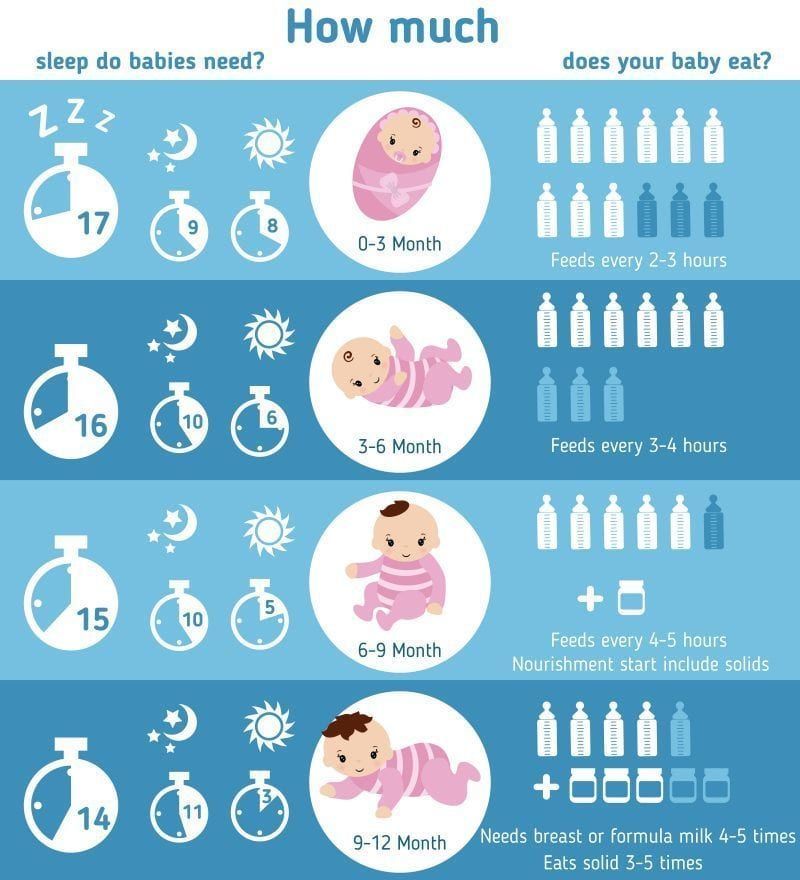
Some parents feel that their milk isn’t coming in during evening hours as much as it did during the day, so babies may take longer to nurse. Don’t let this worry you! The more you nurse, the more your milk supply will increase so baby will get the extra milk they need.
Do babies sleep longer after cluster feeding?
Some babies may sleep longer after cluster feeding because they’re going through a growth spurt. This can feel exhausting – to both mom and baby! So a little extra zzz’s due to cluster feeding is a good thing.
When do you stop cluster feeding?
By the time your little one reaches the 6-month mark, chances are they’re done with cluster feeding. Remember, every baby is different and develops at their own pace, so don’t worry if she wants to keep cluster feeding for a few more weeks. Of course, if you’re concerned at all about how much, how little or how frequent she’s eating, please discuss with your pediatrician.
How do you break cluster feeding?
It’s important to remember that there’s a reason your baby is cluster feeding in the first place. It’s because the growth spurt they’re experiencing requires more food to help baby develop and grow. This can be stressful as you may start to feel like a feeding machine. Remember to give yourself a break, rely on your partner or friends/family for support, and practice self-care when you can. Cluster feeding typically doesn’t last past 6-months as older babies don’t generally cluster feed when they are going through a growth spurt.
It’s because the growth spurt they’re experiencing requires more food to help baby develop and grow. This can be stressful as you may start to feel like a feeding machine. Remember to give yourself a break, rely on your partner or friends/family for support, and practice self-care when you can. Cluster feeding typically doesn’t last past 6-months as older babies don’t generally cluster feed when they are going through a growth spurt.
- Weighted Sleep Sack Safety and How It Will Help Your Baby Sleep
- How To Stop Startle & Moro Reflex Without Swaddling
- The Best Wearable Blankets
- How to Get Your Baby to Sleep Without Nursing
- Best Swaddle for Newborns
- Signs It’s Time to Stop Swaddling Your Baby
- Are Sleep Sacks Safe for Babies Who Can Roll Over?
- How to Get an Overtired Baby to Sleep
- How to Wash & Clean Your Dreamland Baby Sleep Sack
- How to Stop the 45-Minute Intruder During Your Baby's Naps
- How To Swaddle Your Dreamland Baby
- Baby Napping Close to Bedtime and How to Do It Right
- Know the Facts: What's Safe and What's Not for Baby's Tummy Sleep
- How Should A Sleep Sack Fit?
16 of the Best Christmas Gifts for New Parents
6 Reasons Why Your Baby May Be Sleeping More and Eating Less
How to wean a child from night feeding: a step-by-step instruction from a pediatrician
It seems that the baby, bravely tasting broccoli, will very soon be able to do without nighttime snacks.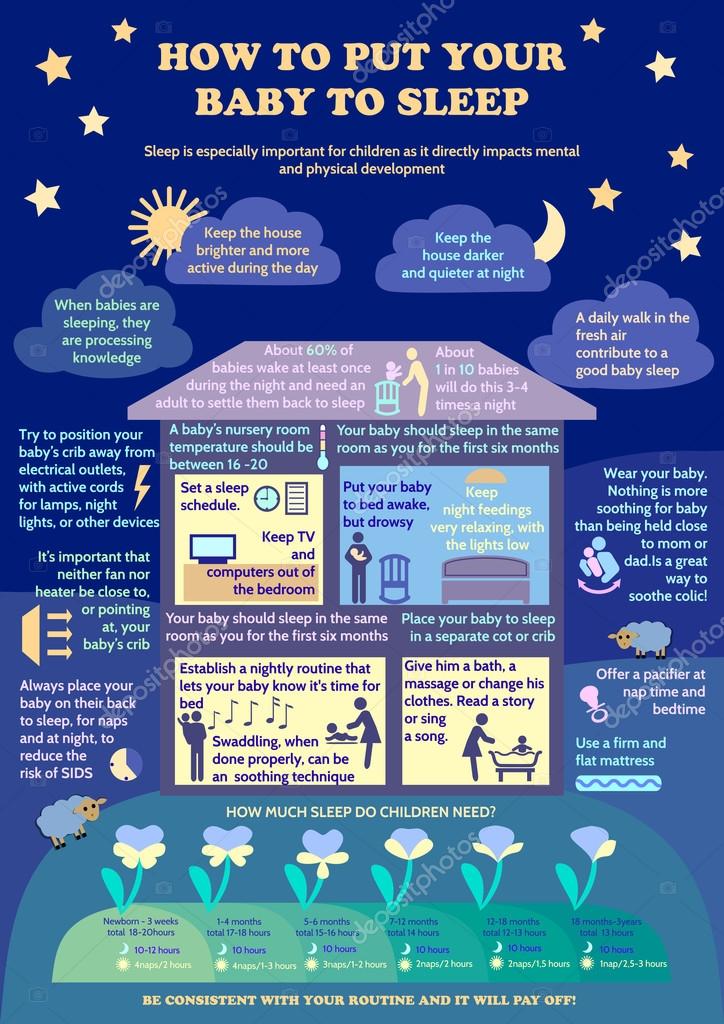 But everything has its time: first of all, we deal with the schedule of daily meals, build a regimen. And only after that we begin the process of smoothly weaning the child from night feedings.
But everything has its time: first of all, we deal with the schedule of daily meals, build a regimen. And only after that we begin the process of smoothly weaning the child from night feedings.
Until what age to keep night feedings
Eating at night is a physiological need for children under one year old. It contributes to the harmonious growth of the child and provides his mother with stable lactation, which is important when it comes to breastfeeding. Artificial babies also need to have round-the-clock access to nutrients in order to develop properly. nine0003
The older children get, the less often they wake up at night to satisfy their hunger: for newborns, the norm is up to 3-4 awakenings per night, for one-year-olds, there are usually fewer feedings (1). However, some scientists note that at the age of 3-6 months, many children stop waking at night, as there are fewer feedings, and the total duration of sleep is reduced to 12-15 hours (2). Of course, this process is different for every baby, so watch your baby carefully and don't hesitate to ask your pediatrician for advice if you're worried about something. nine0003
nine0003
It is worth it to postpone with the refusal of night feeding if the child:
| Doils weight | worries due to teeth to teeth | is sick |
| experiences strong emotional experiences | ; | "walks" during the day |
Night feedings and breastfeeding
The World Health Organization recommends breastfeeding until two years of age (3). There is no contradiction: reducing nightly attachments by no means means a complete rejection of breastfeeding if the mother does not want it. nine0003
Normalization of sleep - this is what we are talking about in this case - is necessary when chronic fatigue and lack of sleep become a problem for parents.
“The absence of night feedings does not mean that the baby is ready to wean, and vice versa,” says Ekaterina Zayets, lactation consultant, pediatrician, leading courses for pregnant and lactating mothers . - Everything is individual: there are families in which there are several feedings during the day, and there are no night feedings from eight months. nine0003
- Everything is individual: there are families in which there are several feedings during the day, and there are no night feedings from eight months. nine0003
Night feeds and bottle feeding
It is believed that bottle fed babies are much easier to wean from eating at night: they do not have the habit of falling asleep on the chest. But, again, everything is individual. Some children continue to demand a bottle of formula, and their peers easily part with nightly attachments and sleep sweetly until the morning.
What to do to wean a child from night feedings
You need to understand that abrupt cancellation can be a big stress for the baby. At night, it will not be possible to keep him busy with a game, to bring his grandmother to help. Therefore, you need to prepare for the fact that this can be a difficult task that will take time. nine0003
Weaning in stages
Observe your child's behavior before reducing nighttime feedings.
What you should pay attention to:
- how many times during the night the baby wakes up;
- which awakenings are related to hunger and which are not;
- whether the quality of sleep is different when the baby sleeps in his own crib, separate from you;
- Can the baby fall asleep without formula or breastfeeding.
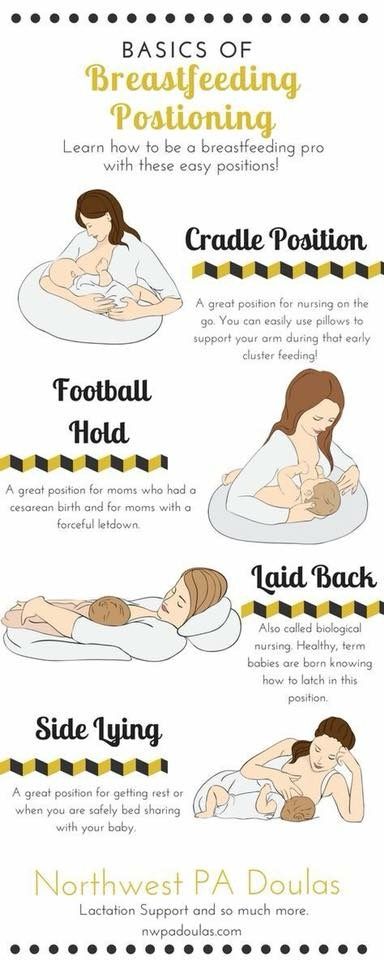
After analyzing this information - and you will definitely see patterns - smoothly start working on reducing nighttime feedings. nine0003
We go to sleep full
A child who has dinner at six in the evening will definitely wake up hungry closer to midnight. Include a snack half an hour before bedtime in your diet and you will feel the difference. Feed your baby something light and nutritious, such as fermented milk products.
Putting away the first feedings
First, say goodbye to feedings that fall during the first hours of sleep. At this time, the baby still does not have time to get hungry, so it is enough just to rock him without additional manipulations. nine0003
Less food at night
Try to organize nighttime feedings so that the baby spends less time on the breast. For artificial children, try to reduce the concentration of the portion.
During the day - more calories
Night feedings are removed from children who are familiar with complementary foods. Make sure your child gets enough "adult" food and water throughout the day. It is also important to build a diet.
Make sure your child gets enough "adult" food and water throughout the day. It is also important to build a diet.
Sleep and food separate
Breastfeeding is almost always a key part of the sleep ritual. Incredibly comfortable: the baby eats and immediately falls asleep, without motion sickness and persuasion. But this bundle must be separated if you are determined to regain a good rest. Feed the baby so that he calms down, relaxes, and eventually falls asleep without a breast. nine0003
Practicing self-sleep
The easiest way to reduce night feedings is for children who have mastered the skill of self-sleep: they no longer notice the change in sleep phases and wake up less often.
Connecting dad
Dad, as you know, can do anything. Including rocking a baby who woke up in the middle of the night. Probably, at first the process of laying will be delayed, but gradually the child will get used to it.
Photo: pixabay.comTrying separate sleep
Feeding non-stop, in a dream, is a common story for mothers who are unable to get up at night.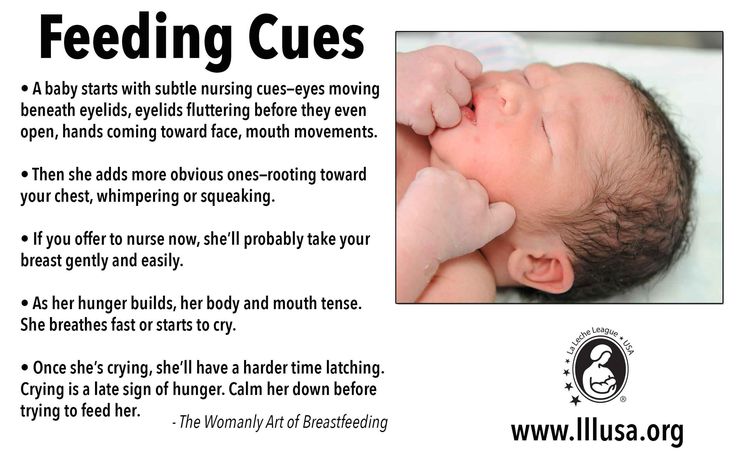 The child comfortably settles down next to him, finds food himself and, having had enough, falls asleep again. Mom may not even know how many times the baby ate at night. This habit may be the hardest to break, but without separate sleep, night feedings cannot be removed. nine0003
The child comfortably settles down next to him, finds food himself and, having had enough, falls asleep again. Mom may not even know how many times the baby ate at night. This habit may be the hardest to break, but without separate sleep, night feedings cannot be removed. nine0003
One study showed that children who fall asleep on their own in a separate bed sleep better and longer and wake up less often (4).
Water and other tricks
There is an opinion that a child who wakes up at night can be offered water. It will only give a temporary "fake" feeling of satiety and will not replace a baby who really wants to eat, milk or formula. If you see that the child did not wake up from hunger, pour him a drink - water can calm him down (only it should be in a cup, not in a bottle). Do not offer juice or sour milk instead of water - these products contain sugars that can provoke the development of caries, because at night the natural protection of the teeth is reduced (3).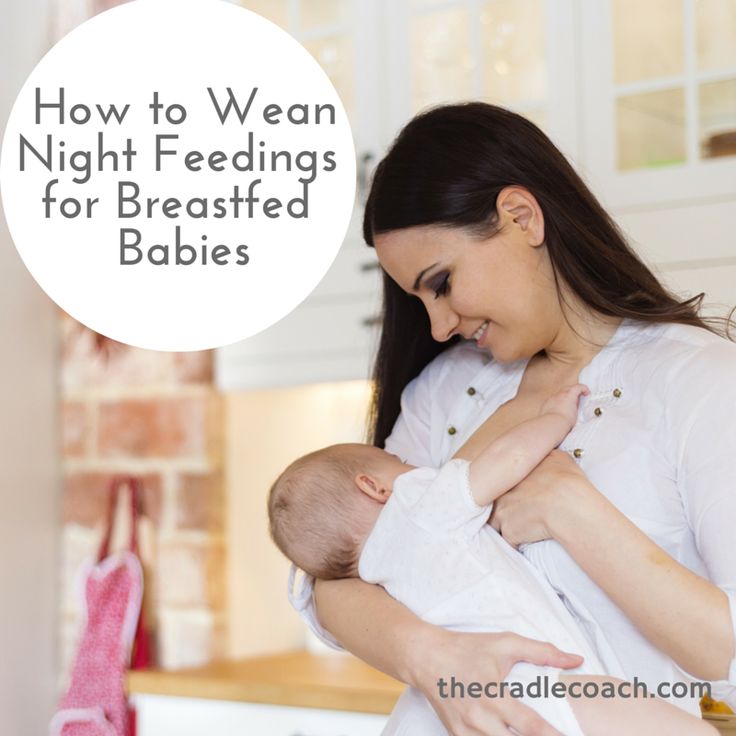 nine0003
nine0003
A few more life hacks to help reduce the number of nighttime feedings are related to the organization of children's sleep. Cool and humid air in the room, late bathing, performing "sleep" rituals help children fall asleep faster and sleep better. If you reduce the duration of daytime sleep, it is likely that the child will also sleep better at night.
Starting to remove night feedings, do not expect an immediate result. This is a leisurely, careful process filled with love and care for the child. Give your baby even more attention during the day than usual. At some point, he will stop waking you up, the feedings will go away, and you will be able to enjoy a full night's rest. nine0003
Popular Questions and Answers
Ekaterina Zayets, Lactation Consultant, Pediatrician will help answer questions:
How do you know if your baby is ready to stop feeding at night?
The readiness of both is important: mother and child. If we talk about timely weaning, then this is due to the ability of the mother to transfer their communication to another format. Much depends on the state of the mother, on the support of others. All stories that can be stopped only, for example, after two to five years, are about fanaticism. There are children who, with a competent approach, attention and sufficient maternal resource, already at 1.3 years old perfectly outgrow the internal need and may not be applied to the breast. nine0003
Much depends on the state of the mother, on the support of others. All stories that can be stopped only, for example, after two to five years, are about fanaticism. There are children who, with a competent approach, attention and sufficient maternal resource, already at 1.3 years old perfectly outgrow the internal need and may not be applied to the breast. nine0003
Mistakes that mothers make when starting to clean up night feeds?
They try to remove them too early, often - they themselves are not mentally prepared for this, without taking into account the peculiarities of the psyche of their child. Sometimes this happens under pressure from others. As a result, we get a neurosis, perhaps in a child.
Everything must be done carefully, with basic knowledge. Ideally, an advanced level is when a mother consults a specialist on her issue (tells how old the child is, how many feedings, etc.). It is optimal to at least read something on this issue, especially if the child is very small - a year and a half.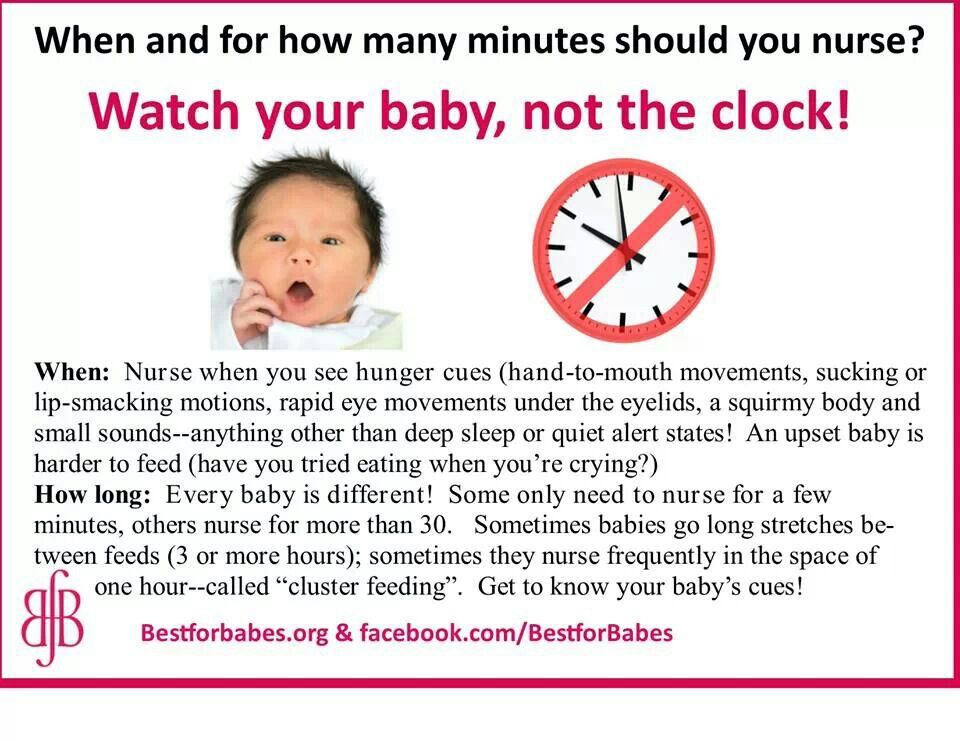 Emotionally, children at this age are not ready for such experiments on the part of the mother. nine0003
Emotionally, children at this age are not ready for such experiments on the part of the mother. nine0003
Many parents fail to understand an important point: if breastfeeding is completely gone (ie, night feeding is the last), you need to build a daily diet, introduce complementary foods correctly and make sure that the baby gets enough liquid. It is with this that mothers most often get consultations, and in rare cases, children can even end up in a hospital with dehydration - and this is no joke.
Are there any differences in weaning children of different ages from night feedings?
With older children, of course, there is a fundamental difference, because the situation does not depend on the number of feedings, but relies on an individual approach,
All children are different in temperament, it is laid down initially, at birth, we cannot change it. And each child has its own unique mother, who also has her own temperament. Her condition must also be taken into account.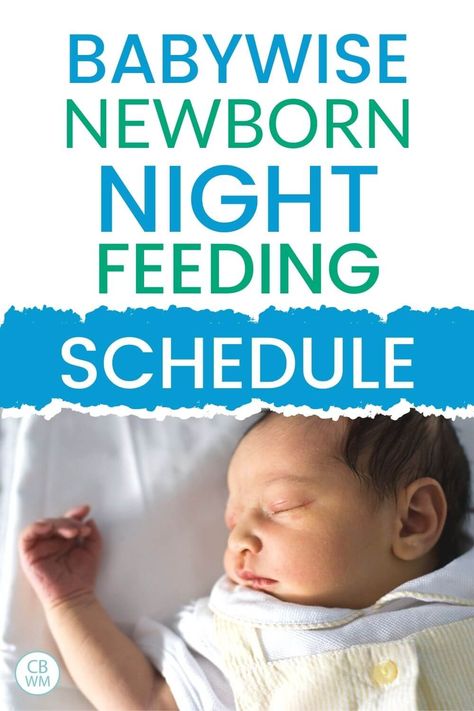 It can be a first-born mother who is exhausted, or a first-born mother, but full of strength. Or maybe a mother of many children, in which there is so much energy that she would still feed and feed.
It can be a first-born mother who is exhausted, or a first-born mother, but full of strength. Or maybe a mother of many children, in which there is so much energy that she would still feed and feed.
Each case has its own tactics. Sometimes they choose the path of self-weaning - the child is offered to gradually reduce the proportion of feedings himself. And he outgrows his needs, he has enough of everything, and his mother is not exhausted. With age, night feedings are completed - by the age of 2-2.5 with the right actions. nine0003
Advice for mothers whose children after the age of two continue to wake up at night for a snack?
You need to understand what the family needs. If you are generally comfortable and want to continue breastfeeding, continue. If this process is tiring, it is recommended to take a nap during the day, eat well so that calories come in, leave the house - so as not to get hung up on the situation.
It is also important to receive competent information support. Often mothers are afraid of weaning as a fact, but for starters, you can simply reduce the proportion of feedings, and everyone will be fine. nine0003
Often mothers are afraid of weaning as a fact, but for starters, you can simply reduce the proportion of feedings, and everyone will be fine. nine0003
Watch your child's daily diet: 4-5 meals, drink (water is a priority). About a liter of food even with continued breastfeeding plus emotional readiness on the part of mother and baby are good indicators to start weaning, or reduce the proportion of feedings, or complete breastfeeding.
Sources
- The role of nutritional factors in organizing sleep in young children. T. V. Turti, I. A. Belyaeva, E. P. Bombardirova, P. E. Sadchikov, A. Yu. Nagonov // Questions of modern pediatrics. 2021. URL: https://cyberleninka.ru/article/n/rol-faktorov-pitaniya-v-organizatsii-sna-detey-rannego-vozrasta/viewer
- Research Strategies: Is there an association between the formation of the gut-brain axis and infant sleep characteristics? I. A. Belyaeva, T. V. Turti, E. P. Bombardirova, P. E. Sadchikov, A. Yu.
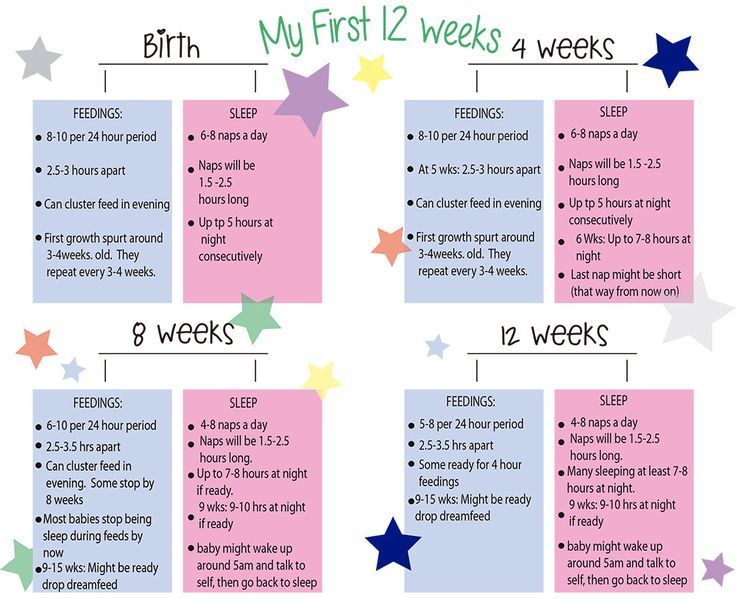 Nagonov // Questions of modern pediatrics. 2021. URL: https://cyberleninka.ru/article/n/strategii-nauchno-prakticheskogo-poiska-suschestvuet-li-svyaz-mezhdu-formirovaniem-osi-kishechnik-mozg-i-harakteristikami-sna/viewer
Nagonov // Questions of modern pediatrics. 2021. URL: https://cyberleninka.ru/article/n/strategii-nauchno-prakticheskogo-poiska-suschestvuet-li-svyaz-mezhdu-formirovaniem-osi-kishechnik-mozg-i-harakteristikami-sna/viewer - Feeding and nutrition of infants and young children. Guidelines for the WHO European Region with a special focus on the republics of the former Soviet Union. URL: https://www.euro.who.int/__data/assets/pdf_file/0005/98303/WS_115_2000FE_R.pdf
- Night sleep in young children. M. I. Dubrovskaya, O. V. Ryazanova, O. K. Netrebenko, A. S. Botkina, V. V. Polunina, A. B. Moiseev, E. E. Vartapetova // BC. Mother and child. 2021. URL: https://cyberleninka.ru/article/n/nochnoy-son-u-detey-rannego-vozrasta/viewer
How to wean a child from night feedings with a bottle or breast
From birth to six months, frequent meals for babies are a physiological norm. Breast milk or formula is absorbed very quickly - within 2-3 hours. And the baby needs to eat again to provide himself with the necessary nutrients for normal weight gain and development. nine0159 Parents in the first months of life will have to restructure their rest schedule so that the baby gets food both day and night. However, there comes a time when there is no need for such frequent snacks, especially at night. When this happens, how to determine if the baby is hungry at night, and how to stop night feedings and start getting enough sleep, we will analyze in this article.
nine0159 Parents in the first months of life will have to restructure their rest schedule so that the baby gets food both day and night. However, there comes a time when there is no need for such frequent snacks, especially at night. When this happens, how to determine if the baby is hungry at night, and how to stop night feedings and start getting enough sleep, we will analyze in this article.
Should we wean the baby from night feedings
Once eating at night is no longer a necessity, there is nothing to stop parents from breaking the habit if they want to. nine0159 It is important to remember that for a child, the process of feeding is also a way to communicate with his adult. When breastfeeding, babies receive their mother's warmth and attention, for which they can wake up and ask for breasts at night.
Psychologists recommend weaning from night feedings so as not to cause psychological trauma to the child.
Until what age should you feed at night
Since the introduction of complementary foods, and this is about 6 months, the child is able not to wake up at night to eat.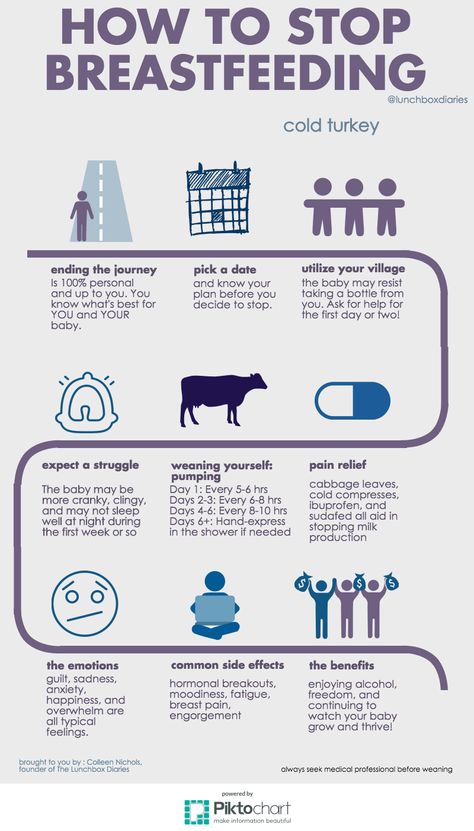 And after a year, his need for night food definitely disappears. nine0003
And after a year, his need for night food definitely disappears. nine0003
Some babies, already at 3-4 months, let their parents sleep, but this is rather an exception. As soon as the baby switches to solid food, which takes longer to digest, the frequency of feeding decreases. And satiety time increases. And this means that it is quite realistic to stop nighttime snacking, providing the child's needs for food and communication during the day.
How do you know if your baby is ready to stop snacking at night
Your child does not need to be fed at night if he: nine0003
- Doesn't eat at night, but plays more with breast or bottle;
- Does not finish the portion;
- Stops acting up if you pick him up and shake him.
In all cases, the need is obvious not so much for hunger as for communication with an adult. Perhaps something is bothering him - hot or cold, stuffy, or he just had a good night's sleep and needs to "walk" in order to fall asleep again.
Children on breastfeeding are more difficult to wean from night feedings than artificial ones. They have more attachment to the chest. Therefore, the weaning process often takes several weeks. During this time, parents need to be patient in order to survive the nightly whims. It's important to be consistent so you don't go back to feeding after you've decided to stop. nine0003
Next, we’ll talk about how to replace night feedings and how to facilitate the transition to uninterrupted sleep for you and your baby.
Basic rules for weaning your baby from night feedings
The task of the parent is to provide the physiological and psychological needs of the child during the day, so that he sleeps peacefully at night.
- Spend more time with your child during the day than usual so that he receives attention, affection and care - after all, this is his important need, for the sake of which he is able to wake you up in the middle of the night.
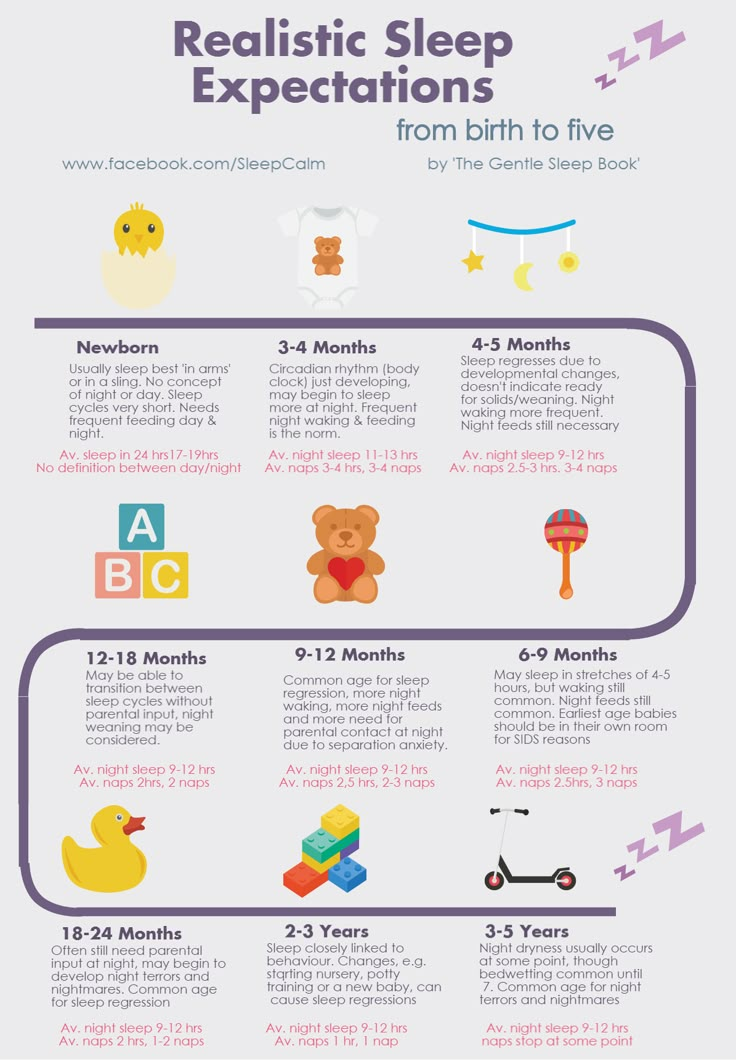 nine0058
nine0058 - Go for a long walk, keep your little one active between naps.
- Bathe your baby shortly before the last feed.
- And feed him well at night, and let the penultimate meal be easy.
- Provide a comfortable temperature, humidity and enough oxygen in the room.
- Feed your baby again before you go to bed yourself. To do this, it is allowed to wake the baby. If you wake him up and feed him at 11-12 at night, then it is likely that he will sleep until 5-6 in the morning. nine0058
- Feed him a special nighttime formula that contains slow-digesting carbohydrates to keep him feeling full all night.
How to wean from nighttime breastfeeding
Gradually, the baby needs to be made clear that he will not receive food and breasts at night, for this, follow the recommendations:
- Give a bowl of water instead of breasts.
- Separate your baby or wear closed underwear so that he has limited access to his mother's breast.
 nine0058
nine0058 - Arrange with dad to get up to calm the child at night. In this case, you will not only get enough sleep, but also avoid the temptation to take pity on the whims of the little one and give breasts.
How to wean from artificial feeding at night
Swap out the formula bottle for a bowl of water. And after a while, the baby will get used to the fact that he does not receive a bottle, which means that there is no point in waking up to eat.
Bad time to stop feeding at night
If your usual routine of life is disturbed, this is not the best time to introduce additional restrictions. For example, if the baby is sick, he is teething, there is a difficult psychological climate at home, you are traveling or guests have come to spend the night. Let life get back to normal, and it will be easy for you to remove night feedings.
The process of weaning from snacking at night, with sufficient perseverance of the parents, takes no more than three weeks.